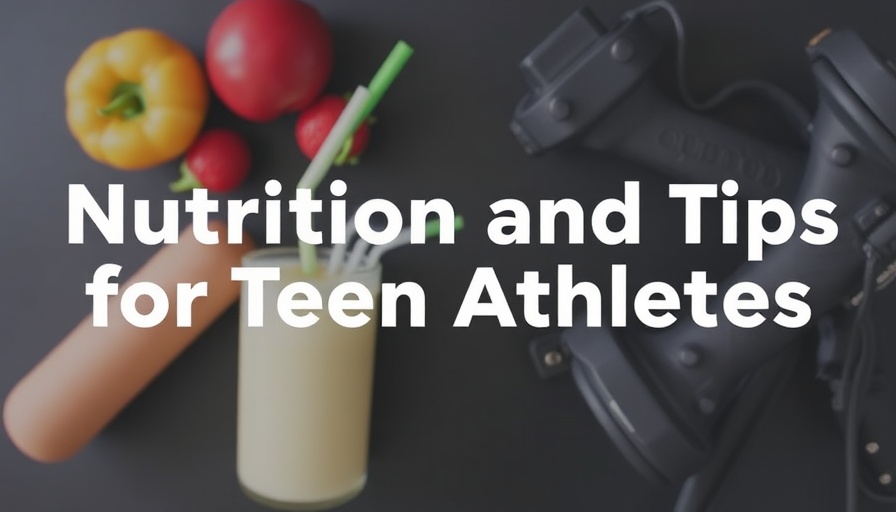
Decoding Teen Nutrition: Why It's Different
The whirlwind of adolescence brings unparalleled changes, especially for teen athletes. During this crucial developmental phase, their nutritional needs extend beyond basic caloric intake. As they grow, their bodies call for targeted nutrition to support not just their athletic performance but also their cognitive and emotional well-being.
Adolescents experience a surge in hormones, which affects energy levels, sleep patterns, and mood. Therefore, simply scaling down adult nutrition guidelines isn't sufficient. Instead, understanding the specific requirements of young athletes is essential to help them thrive both on the field and in daily life.
The Critical Role of Protein
If there's one takeaway when it comes to fueling a teen's athletic journey, it’s the significance of protein. Aiming for approximately one gram of protein per pound of body weight can drastically enhance muscle development and recovery. Sources like eggs, fish, and lean meats are foundational, while protein shakes can help bridge any gaps when time is tight.
Breakfast, often dubbed the most important meal of the day, particularly sets the energy tone. A protein-rich morning plate, perhaps scrambled eggs or a hearty smoothie with Greek yogurt, can keep them fueled, focused, and ready to tackle their day.
Exploring More Than Just Macronutrients
While protein forms the basis of an athlete's diet, micronutrients should never be overlooked. Elements like sodium, potassium, and magnesium are vital in keeping muscles functionally primed and cramp-free, especially during intense practices or warm weather. Additionally, Vitamin D is crucial for bone health but remains notoriously low among many teens.
Teens also require important fats, particularly omega-3s, which support brain function and overall recovery. Foods rich in these nutrients, including fish and flaxseeds, can play a significant role in their diet.
Fostering Independence in Healthy Choices
As parents, one of the most important lessons we can impart to our athletes is the concept of ownership over their health. Encouraging them to make informed decisions about food can be a transformative experience. Involve them in meal planning, grocery shopping, or even cooking; these activities can instil confidence and awareness regarding nutrition.
Key conversations about healthy snacks, balanced meals, and hydration will empower teens to take control of their choices, ultimately translating to better performance and holistic health.
Building Recovery Habits
Finally, a holistic approach also necessitates a focus on recovery. In the frenetic world of teenage sports, often filled with late practices and weekend competitions, it can be all too easy to prioritize performance over recovery. Emphasizing adequate hydration, sleep, and even mindfulness practices can optimize both performance and emotional health. Remember, consistent habits outside of training all contribute significantly to an athlete’s overall well-being.
When we equip our teens with knowledge about their bodies and nutrition, we’re setting them up for a lifetime of healthy habits. As they navigate this complex stage of life, remember that balance, independence, and informed decision-making are keys to fostering not just good athletes, but also healthy individuals.
 Add Row
Add Row  Add
Add 




Write A Comment